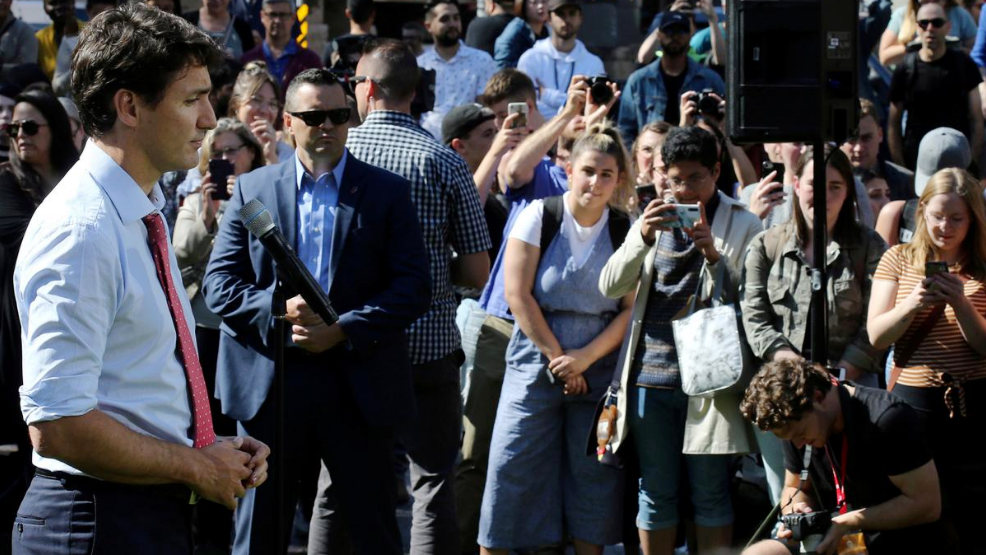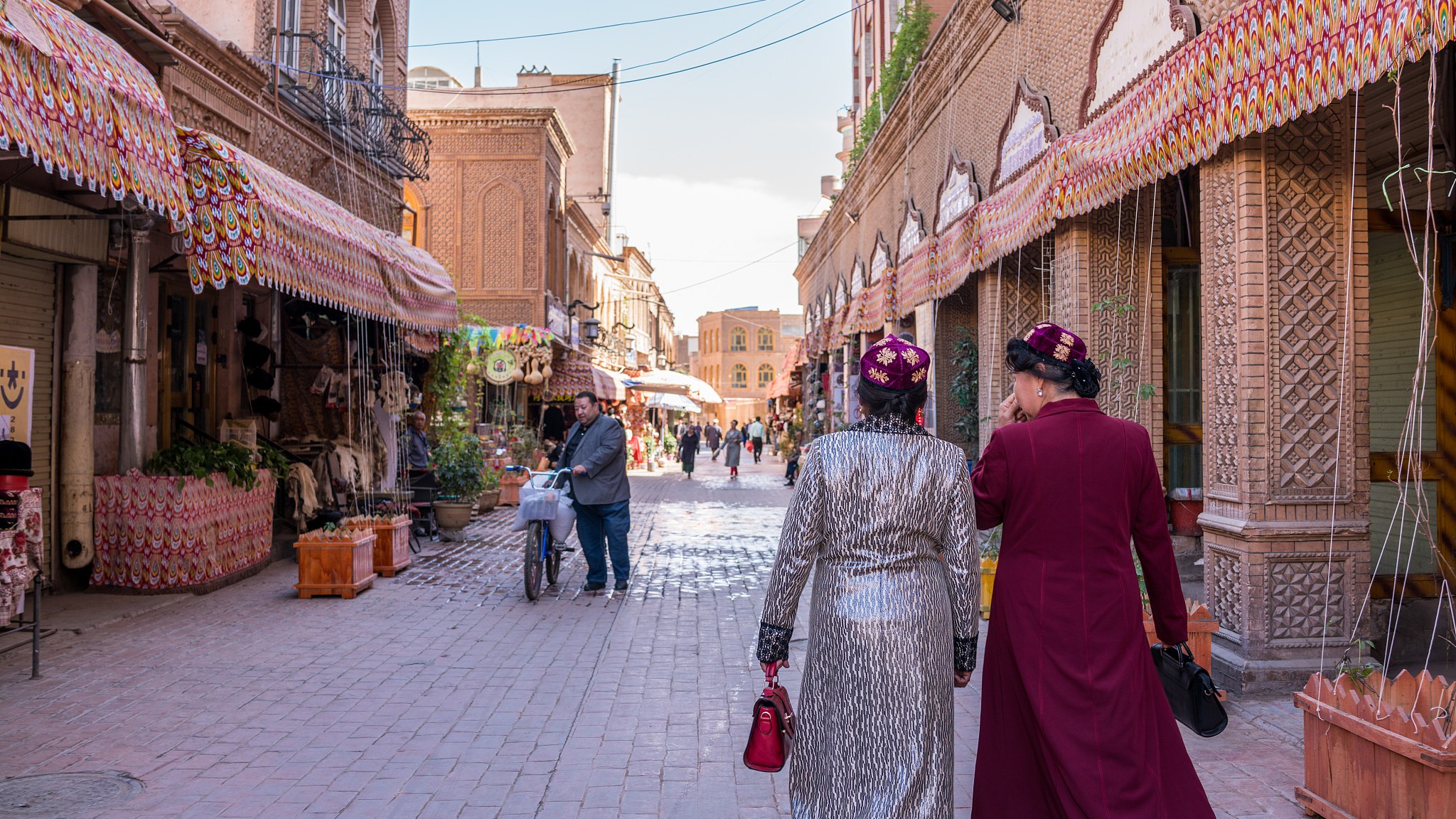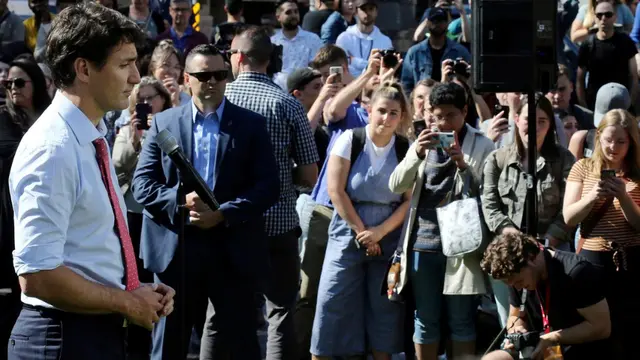
Canada's Prime Minister Justin Trudeau speaks during a campaign in Winnipeg, Manitoba, Canada, September 19, 2019. /Reuters
**Editor's note: **Keith Lamb is a University of Oxford graduate with an MSc degree in Contemporary Chinese Studies. His primary research interests are China's international relations and "socialism with Chinese characteristics." The article reflects the author's opinions and not necessarily the views of CGTN.
After 751 unmarked graves were uncovered in Saskatchewan, Canada, I recently argued that considering the historical atrocities committed by liberal imperialism, which continues to this day, Canadian Prime Minister Justin Trudeau's self-proclaimed moral legitimacy to criticize China is illusionary.
However, criticism is an inevitable component of dialogue between states. To wish it away would be unrealistic and, in the long run, unconstructive. Nevertheless, the West needs to adjust to a new multipolar reality where they recognize that they don't have a monopoly on truth.
In order to help the West "criticize" China reasonably, I offer four pieces of advice for those in Trudeau's position.
First, they must ask what is the underlying purpose of their criticism. Second, they must supplement their criticism with listening. Third, they must be self-reflective. Fourth, they must be able to offer a better solution.
Usually, criticism implies that there is a perceived fault that needs to be rectified. This being the case criticism should be truthful otherwise credibility is lost to absurdity.
Whatever one thinks about China's actions in Xinjiang Uygur Autonomous Region, claims of slavery, genocide and concentration camps are fraudulent.
So off track has the news on Xinjiang gone that Trudeau's criticism lacks any intent to help China. Instead, his criticism is grandstanding for domestic consumption which serves to purposely delineate an enemy and virtue signal to an electorate propagandized by the business media.
Perhaps Trudeau has also not moved on with the times. Western hegemony, until recently, has been so all-encompassing that Western leaders have assumed their views were universal. This has led to the West being entrenched in dogma leading to the discarding of alternative and successful developmental models such as China's.
By overlooking basic facts, Canada can criticize without listening or learning. Take Canada's First Nations who are still reported as "living in Third World conditions" with poor drinking water. How can such a condition persist in a country as wealthy as Canada?
In contrast, developing China, despite its huge population and relative lack of resources, has all but solved its clean water problem in southern Xinjiang which had previously led to diseases such as dysentery.
Without listening to China, and without respecting China's successes in alleviating poverty, all criticism sounds mean spirited. Make no mistake, notwithstanding that there is much for China to improve on, the lifting of at least 800 million people from extreme poverty, counts as mankind's greatest human rights achievement to date.

A view of Kashgar in northwest China's Xinjiang Uygur Autonomous Region, April 8, 2019. /CFP
Trudeau may well disagree, and if so, I suggest he spends time living on a deprived reservation so that he can reflect on the meaning of human rights from the perspective of the Global South.
Needless to say, the West, as a whole, is in urgent need of self-reflection. They must ask themselves what are the broader historical currents and biases that are leading them to their criticism.
Considering the multiple lies that have led Western states down the path of war, it is pertinent that all leaders examine their assumptions. Certainly, they should drop the supposition that all states will mirror their own aggressive history.
To Canada's credit, it didn't join the 2003 neoliberal destruction of Iraq. Its intelligence services understood the criminal intent at hand. During the conflict, Canadians, in China, wore their flags as badges of pride to distinguish themselves from their imperial neighbors. Trudeau needs to recapture this spirit of independence.
Unfortunately, it may be that just like previous "noble" Western leaders Trudeau has imperial intentions behind his soft liberal veil. It may be that Trudeau understands very well how Xinjiang atrocity propaganda is constructed, and it may be that it simply suits the agenda he represents.
How else could one explain the contradiction of Trudeau criticizing China's human rights record while simultaneously selling $2.2 billion of military equipment to Saudi Arabia in 2019? Undoubtedly, Saudi Arabia's actions in Yemen, and its human rights record, lie diametrically opposed to Trudeau's skin-deep human rights pretentions.
Of course, if a new cold war is sparked, then Canada will continue to make a killing in weapons sales. At any rate, if Trudeau, and the West, were able to implement the first three pieces of advice for criticizing China then they will be able to offer advice for improvement.
However, when it comes to terrorism, tragically, the Western response has been to destroy Afghanistan which Canada partook in 2001-2014. This invasion of Afghanistan has led to one of the greatest human rights tragedies of the 20th century. Heroin addiction is rife, there is a refugee crisis, and the country remains entrenched in poverty.
With this in mind, I suggest that Trudeau also takes time out to live in Afghanistan and China's Xinjiang. After he does this, let us hear his criticisms on Chinese human rights vis-à-vis the West.
(If you want to contribute and have specific expertise, please contact us at [email protected].)
 简体中文
简体中文



